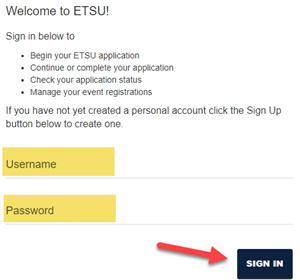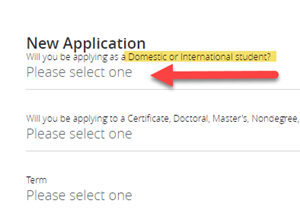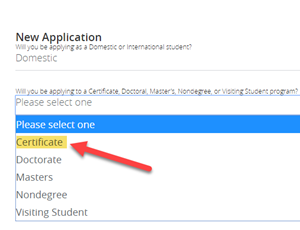Advocate and Empower
The Clinical Addiction Studies Counseling Studies certificate prepares students to become clinical practitioners, advocates, and leaders in the prevention and treatment of substance use disorders and addiction in the Appalachian region. Through a blend of theoretical frameworks and practical interventions, students explore physiological, psychological, and social aspects of substance use and addiction.
Learn to mitigate risks associated with substance use disorders and addiction by gaining the skills needed to support individuals. Training behavioral health providers to become addiction counseling specialists has the potential to increase the well-being of children, families, and communities, and the education can potentially help save lives.
Make a Difference
The certificate is designed for learners interested in pursuing state licensure or certification as clinical addiction specialists or alcohol and drug abuse counselors. Students will be prepared to make a positive difference in the lives of those affected by addiction, offering hope, healing, and pathways to long-term recovery.
Program information including curriculum and graduation requirements can be found in the ETSU Graduate Catalog.
Additional program details:
- Students may simultaneously enroll in the certificate and an ETSU graduate degree if admitted to both programs.
- Students who complete the certificate in Clinical Addiction Counseling Studies and later wishes to pursue the Master of Social Work (MSW) degree may transfer the certificate credits into the master’s degree with approval.
- Most state licensure/certification boards accept the certificate as 180 hours (45 hours per course) of substance use/addiction specific education required for licensure or certification as alcohol and drug counselors and/or licensure as clinical addiction specialist (LADAC, CAADC, LCAS, etc.).
-
Career Outlook and Income Trends
The job outlook for Substance Abuse, Behavioral Disorder, and Mental Health Counselors is projected to increase. Behavioral health clinicians who have an addiction specialty can be found in a wide variety of settings: community mental health, criminal justice system, healthcare, addiction treatment, private practice, college counseling centers, juvenile justice, child welfare, etc.
Additional information can be found on the U.S. Bureau of Labor Statistics Occupational Outlook Handbook: Substance Abuse, Behavioral Disorder, and Mental Health Counselors website.

Put compassion into action with coursework designed to address the stigma and existing barriers to treatment.
Steps to Apply
-
Step 1 - Create your ETSU Application Account
Step 1 Create your ETSU Application Account by choosing the "Sign Up" option

-
Step 2 - Sign into the ETSU Application Portal
Step 2 Sign in to the ETSU Application Portal and select "Start a New Application"

-
Step 3 - Complete the Remaining Fields
Step 3 Choose "Graduate," select your student type (domestic or international), select "Certificate," term, then choose Clinical Addiction Counseling Studies and complete the remainder of the form.


Cost
Credits to complete this program: 12 credit hours
| TN Residents | eRate (Out of State, 100% online) | Out of State |
|---|---|---|
| $646 per credit hour | $805.50 per credit hour | $1,487 per credit hour |
| - Additional fees may be required. - Visit the Paying for College page to read more about costs and financial aid options. - The costs associated with attending ETSU can include both direct and indirect costs. Please review ETSU's Cost of Attendance for more details. |
||
Frequently Asked Questions
-
What accreditations apply to this certificate program?
East Tennessee State University is accredited by the Southern Association of Colleges and Schools Commission on Colleges (SACSCOC) to award baccalaureate, master’s, education specialist, and doctoral degrees. East Tennessee State University also may offer credentials such as certificates and diplomas at approved degree levels. Questions about the accreditation of East Tennessee State University may be directed in writing to the Southern Association of Colleges and Schools Commission on Colleges at 1866 Southern Lane, Decatur, GA 30033-4097, by calling (404) 679-4500, or by using information available on SACSCOC's website (www.sacscoc.org).
-
Is a master’s degree required for admission?
While a master's degree is not required for admission to the program, the program does require a minimum of a bachelor's degree in a behavioral health field (such as social work, counseling, or psychology).
-
Are there any prerequisites?
Applicants must have a bachelor’s degree in the behavioral health field, at least a 2.5 GPA, and meet the ETSU Graduate School admission requirements.
-
Are the courses asynchronous or synchronous?
Both. Classes are mainly asynchronous, with synchronous meetings being required for only one course (SOWK 5368). Other courses may offer optional synchronous meetings as well, but they do not require them.
-
Are there any on-campus requirements, meetings, orientations, etc.?
No, there are no on-campus requirements.
-
What is the time to completion?
Full-time students typically complete this program in 1 year.
The part-time completion timeline varies between students as it depends on their course load, semester preferences, and other factors. Students have up to six years to complete the program.
-
Are scholarships available?
The department does not offer any scholarships for the certificate. However, students are encouraged to visit the Paying for Graduate School website for information regarding ETSU scholarships and other financial resources.
 South Dossett Drive - Closure...
South Dossett Drive - Closure... 